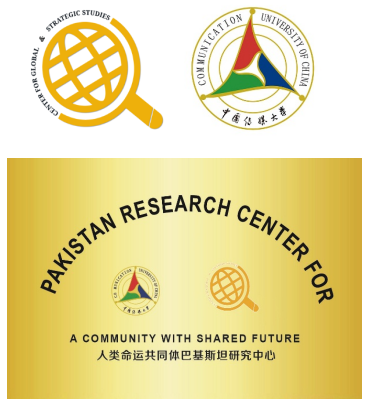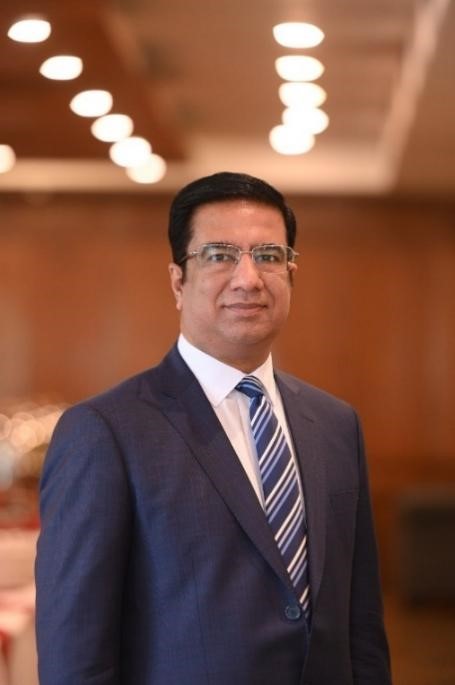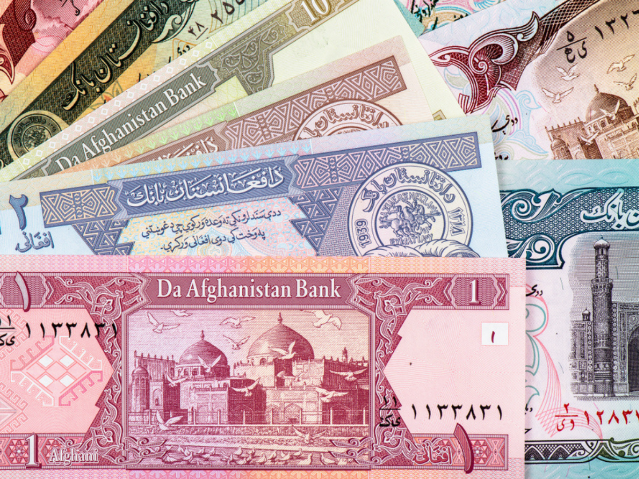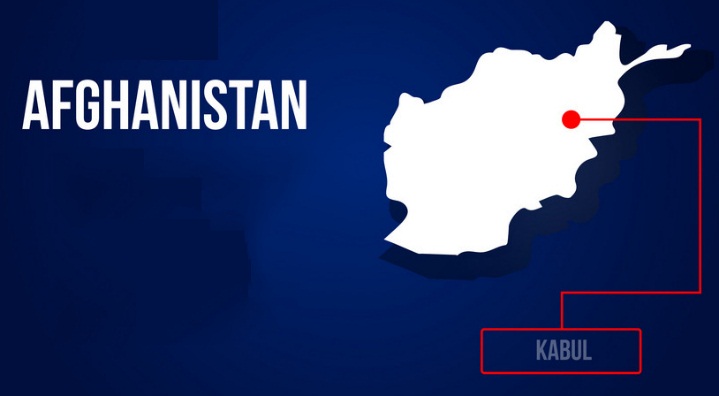

By Mr. Khalid Taimur Akram Director, Pakistan Research Center for a Community with Shared Future, Communication University of China (Beijing), China |
America never provided a plausible explanation of its goals and plans to achieve them since it went to war in Afghanistan. Contrary to the widespread doomsday predictions fostered by the West, American withdrawal does not signify disaster for Afghanistan. The majority of West’s analysts have projected a bleak picture of post-U.S. evacuation followed by a dreadful civil war in Afghanistan. Present ly, Afghanistan is facing a period of turmoil, but it is likely to experience stability in future, if economic/financial issues are resolved. The Superpower defeat in Afghanistan is not a new thing. After the Taliban control, regional dynamics have been changed. There are many reservations by the international community over recognizing the Taliban regime and governance system. In addition, United Stated and many Western countries have been envisaging Afghanistan wrong again by spreading misconceptions about the Afghan crisis.
ly, Afghanistan is facing a period of turmoil, but it is likely to experience stability in future, if economic/financial issues are resolved. The Superpower defeat in Afghanistan is not a new thing. After the Taliban control, regional dynamics have been changed. There are many reservations by the international community over recognizing the Taliban regime and governance system. In addition, United Stated and many Western countries have been envisaging Afghanistan wrong again by spreading misconceptions about the Afghan crisis.
Misconceptions triggered by the West:
Now that the Taliban are in power, the socio-economic and political dynamics have been changed. No doubt that Taliban are different from the pre-9/11 times. They are more educated, diversified, and understand international politics. It is yet to be seen that how they will conduct statecraft and establish a strong foreign policy. Nonetheless, the world has to give the new Taliban administration some time and breathing space rather than spreading misconceptions. Since the post-15th August 2021 period, America and other Western countries began with faulty predictions of the Afghan government’s longevity.
Two days after the fall of Kabul, Western media/think tanks/analysts declared that Afghanistan would experience a bloody civil war, collapse like a sandcastle, and Al-Qaeda/ISIS would expand its tentacles giving air to radicalization and extremism. Such statements are based on an obsolete understating of Afghanistan and the greater Middle East. Taliban’s immediate interest is to establish peace in Afghanistan while maintaining economic sustainability. Another assertion that the Taliban is fragmented is also not entirely correct. Such believes have had always stopped the negotiation process with the Taliban. In reality, all the ethnic and tribal groups in Afghanistan are united in fighting and defeating any external power. For many years, Taliban has operated as a cohesive insurgent movement with consultative leadership and multiple power cores. At times there have been internal chaos and even violence between them, but as a whole, the movement has displayed the ability to remain intact. It manifested coherence and internal discipline in adhering to its peace agreement with the U.S. However, it does not support the claim that the Taliban is a unitary actor outrightly. The movement remains decentralized with the compliance of individual commanders.
Another claim prevails that the Taliban experienced triumph due to foreign support, which is not true because it was an indigenous movement. Afghanistan’s situation has a ripple effect on its neighbor countries. Thereby, Pakistan, Iran, China, Russia, and Central Asian Republics (Tajikistan, Turkmenistan, Uzbekistan, Kazakhstan, Kyrgyzstan) have maintained contacts with the Taliban. Foreign intervention is like a two-edged sword that costs crucial legitimacy as an indigenous force. For the Taliban, it is impossible to measure the extent of popular support it enjoys as a movement in Afghanistan from externals. Some analysts claim that the U.S. withdrawal from Afghanistan was a hasty decision. But, delaying the decision to withdraw would have also achieved nothing. According to the U.S., one of the purposes for a long stay in Afghanistan was to support and train an Afghan security force capable of defending independently. Nevertheless, that it has failed to do so. To set the record straight, U.S. ambitions in the region are now crystal clear: i) Contain Russian outreach towards the Indian Ocean; ii) Prevent rising Chinese influence and its economic hold; iii) Keep Central Asian countries landlocked and disrupt Central-South Asian regional connectivity; iv) Sabotage the grand Belt & Road Initiative (BRI); v) keep an eye on Iranian nuclear ambition; and vii) facilitate India to become an Asian giant in the region. These American interests are enduring in nature. Even after the withdrawal from Afghanistan, the U.S. will try to achieve them through covert means and its strategic partner, India.
indigenous force. For the Taliban, it is impossible to measure the extent of popular support it enjoys as a movement in Afghanistan from externals. Some analysts claim that the U.S. withdrawal from Afghanistan was a hasty decision. But, delaying the decision to withdraw would have also achieved nothing. According to the U.S., one of the purposes for a long stay in Afghanistan was to support and train an Afghan security force capable of defending independently. Nevertheless, that it has failed to do so. To set the record straight, U.S. ambitions in the region are now crystal clear: i) Contain Russian outreach towards the Indian Ocean; ii) Prevent rising Chinese influence and its economic hold; iii) Keep Central Asian countries landlocked and disrupt Central-South Asian regional connectivity; iv) Sabotage the grand Belt & Road Initiative (BRI); v) keep an eye on Iranian nuclear ambition; and vii) facilitate India to become an Asian giant in the region. These American interests are enduring in nature. Even after the withdrawal from Afghanistan, the U.S. will try to achieve them through covert means and its strategic partner, India.
Present Situation in Afghanistan: Humanitarian Crises
The recent situation in Afghanistan, i.e., humanitarian crises, food shortage, and economic downfall, require significant aid to support the country. Since seizing power in mid-August, the Taliban’s interim government in Afghanistan has faced a worsening economic crisis, with most of the central bank’s assets frozen abroad and internal economic activity grinding to a halt. A latest report by the United Nations warned that more than half of Afghanistan’s population is expected to experience emergency levels of food insecurity between November 2021 and March 2022. This is a 35% surge over the same season last year in a country, facing its second drought in four years and the worst of its kind in 27 years. The report also draws the world’s attention to the unfolding humanitarian crisis in Afghanistan with parents selling their children.
Support from Regional Countries:
Understanding the gravity of the humanitarian situation, the regional countries are providing aid assistance to Afghanistan. Recently, China has pledged 200-million-yuan ($31m) aid to Afghanistan, including food supplies and coronavirus vaccines. Pakistan also announced to provide over $28m in immediate humanitarian aid to Afghanistan and ease travel and trade restrictions at its land borders. European Union plans $1.15 billion aid to Afghanistan and its neighbors for regional stability. Turkey has provided 33tons of food aid to Afghanistan. The Turkish Red Crescent (Kızılay) delivered the aid, covering the one-month need of 16,000 people in turmoil. In October, Uzbekistan also sent humanitarian aid to neighboring Afghanistan to help the Afghan people overcome the consequences of the COVID-19 pandemic and prevent a possible humanitarian and food crisis. The aid included foodstuffs, other essential goods, medicines, attires, and footwear. Moreover, in the recent October meeting hosted by Russia, many regional countries supported Taliban in calling for the UN to convene a conference as soon as possible to help rebuild Afghanistan. This is a clear manifestation that regional states are cooperating to resolve crucial issues for stability.
Conclusion:
Regional countries are enhancing cooperation in resolving Afghanistan’s internal issues, mainly food security situation and refugee crises. In this aspect, regional organization, i.e., the Shanghai Cooperation Organization (SCO), can play a proactive role in integrating all regional partners and the Taliban administration. SCO is a multilateral institution with supranational characteristics. In this aspect, Central Asian countries, China, Iran, Turkey, and Pakistan can also integrate at one platform to formulate firm policies to negotiate with the Taliban and establish a future roadmap for cooperation. In this era, countries are finding ways to diversify economic connectivity because it is the key motive behind regional alignment. Stability in Afghanistan is the prerequisite for rejuvenating historical and cultural linkages between Central and South Asia. Thereby, all regional allies must play a decisive role in helping Afghan people. This time, Afghanistan and the region must move towards harmony, peace, and prosperity.
Edited by ICSF CUC.
To view, kindly visit the following links:
